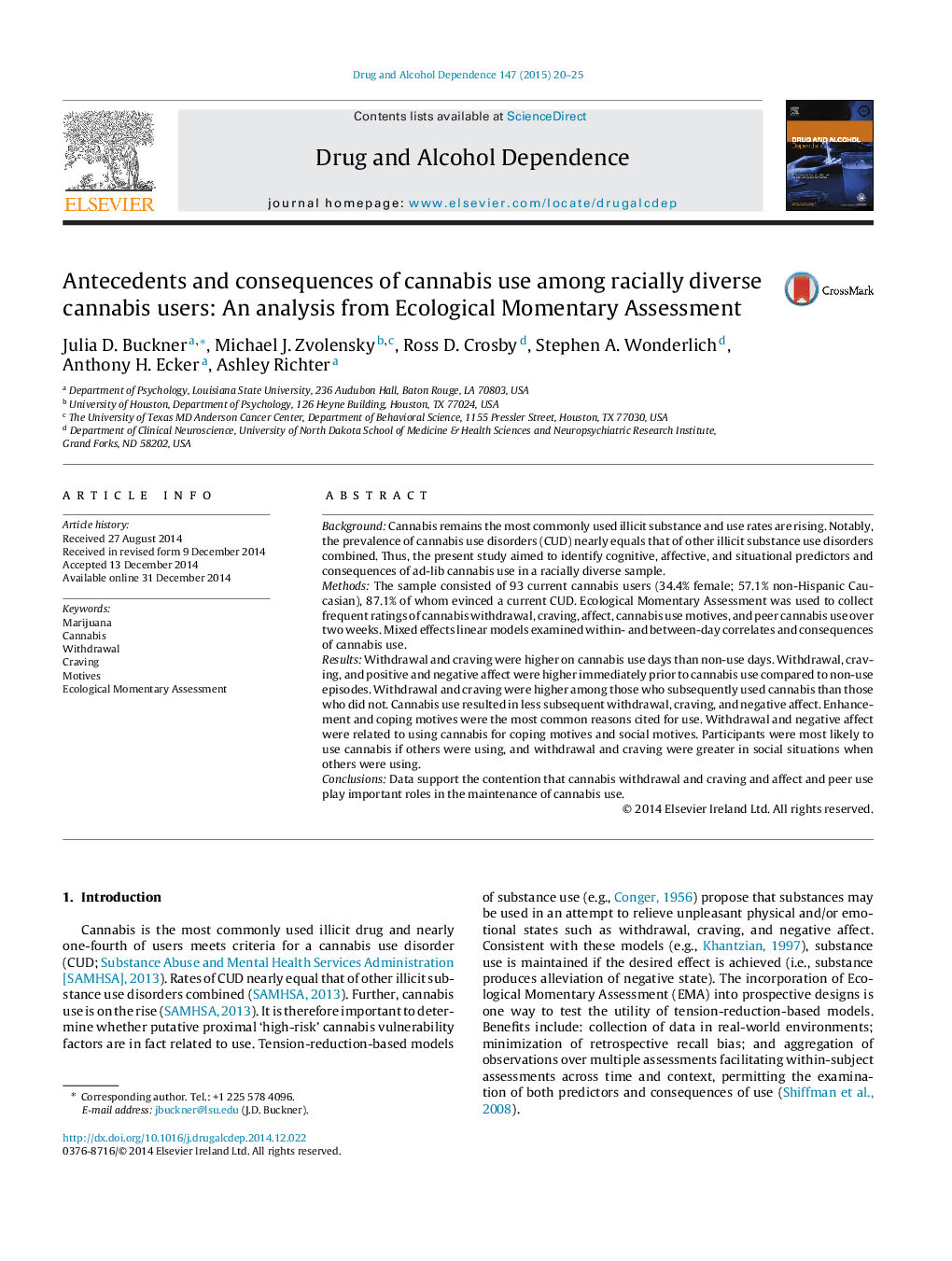| کد مقاله | کد نشریه | سال انتشار | مقاله انگلیسی | نسخه تمام متن |
|---|---|---|---|---|
| 1069865 | 1486144 | 2015 | 6 صفحه PDF | دانلود رایگان |
• Predictors and consequences of cannabis use were examined in racially diverse sample.
• Withdrawal and craving were robustly related to cannabis use.
• Withdrawal, craving, and negative affect were higher prior to and lower after use.
• Enhancement and coping motives were the most common reasons cited for use.
• Withdrawal and craving were greater in social situations when others were using.
BackgroundCannabis remains the most commonly used illicit substance and use rates are rising. Notably, the prevalence of cannabis use disorders (CUD) nearly equals that of other illicit substance use disorders combined. Thus, the present study aimed to identify cognitive, affective, and situational predictors and consequences of ad-lib cannabis use in a racially diverse sample.MethodsThe sample consisted of 93 current cannabis users (34.4% female; 57.1% non-Hispanic Caucasian), 87.1% of whom evinced a current CUD. Ecological Momentary Assessment was used to collect frequent ratings of cannabis withdrawal, craving, affect, cannabis use motives, and peer cannabis use over two weeks. Mixed effects linear models examined within- and between-day correlates and consequences of cannabis use.ResultsWithdrawal and craving were higher on cannabis use days than non-use days. Withdrawal, craving, and positive and negative affect were higher immediately prior to cannabis use compared to non-use episodes. Withdrawal and craving were higher among those who subsequently used cannabis than those who did not. Cannabis use resulted in less subsequent withdrawal, craving, and negative affect. Enhancement and coping motives were the most common reasons cited for use. Withdrawal and negative affect were related to using cannabis for coping motives and social motives. Participants were most likely to use cannabis if others were using, and withdrawal and craving were greater in social situations when others were using.ConclusionsData support the contention that cannabis withdrawal and craving and affect and peer use play important roles in the maintenance of cannabis use.
Journal: Drug and Alcohol Dependence - Volume 147, 1 February 2015, Pages 20–25
